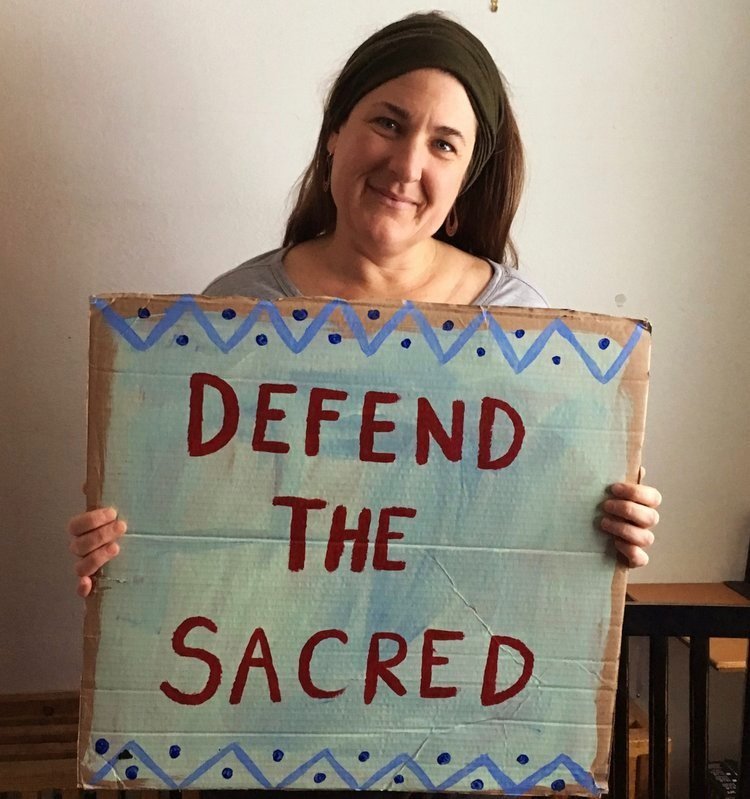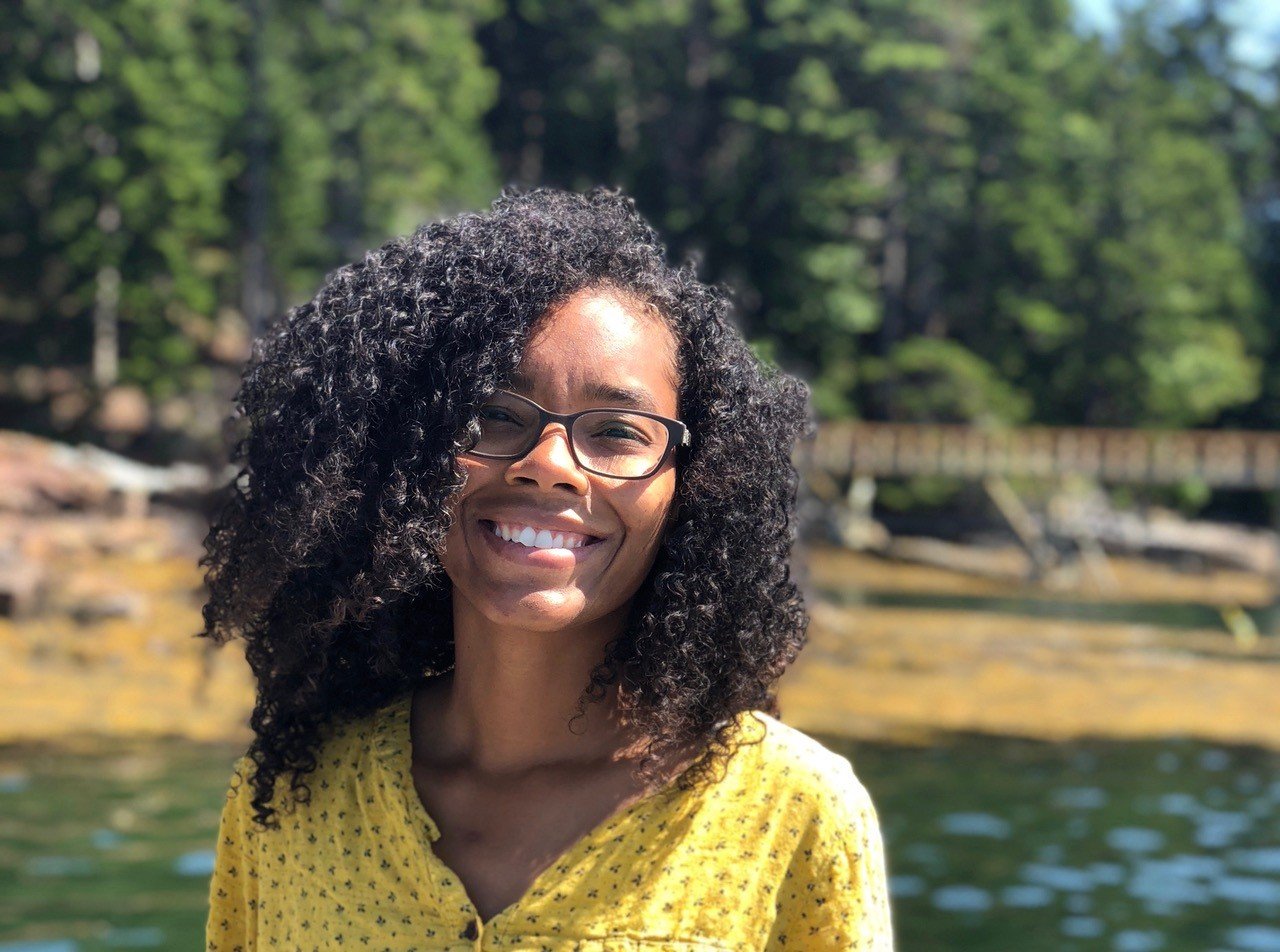Our Staff
Our Movement Advisory Council
Pat McCabe (Weyakpa Najin Win, Woman Stands Shining) (she/her)
Pat McCabe is a Diné (Navajo) mother, grandmother, activist, artist, writer, ceremonial leader, and international speaker. She is a voice for global peace, and her paintings are created as tools for individual, earth and global healing. She draws upon the Indigenous sciences of Thriving Life to reframe questions about sustainability and balance, and she is devoted to supporting the next generations, Women’s Nation and Men’s Nation, in being functional members of the “Hoop of Life” and upholding the honor of being human. You can learn more about her work on her website here.
Brel Hutton-Okpalaeke (they/them)
Brel began their co-op journey in 2014 in Madison, Wisconsin as a member of Madison Community Cooperative, Madison Area Cooperative Housing Alliance, and the United People of Color Caucus. They are the Director of Development Services for the North American Students of Cooperation (NASCO), a cooperative that organizes and educates affordable group equity co-ops and their members for the purpose of promoting a community-oriented cooperative movement. In their free time, Brel teaches at and serves on the board of the Madison Freewheel Bicycle Co. and is in the process of converting it to a worker-owned co-op. Brel sees cooperatives as one of the best ways to affect social change and actively fight gentrification and extractive economic practices. Brel strives to make sure that people of color in cooperatives are represented, supported, and respected by our co-ops. Brel believes in strategic, continual expansion of the co-op sector because we can change the world for the better with these things!
Deseree Fontenot (she/they)
Deseree is a collective member of Movement Generation: Justice and Ecology Project and co-founder of the Queer EcoJustice Project. As a queer black organizer, farmer, and grassroots ecologist, Deseree’s movement work is focused on land and liberation, climate justice and queering ecological education. Deseree grew up between Southwest Louisiana and the Los Angeles area where she began her movement building journey as a student organizer working on queer and trans liberation struggles in 2008. After almost a decade of working within the LGBTQ movement, Deseree shifted her focus towards land-based work as a scholar, activist and farmer. In 2015 she became a co-organizer of the People of Color Sustainable Housing Network and in 2016 she co-founded the Queer Eco-Justice Project, organizing at the intersection of ecological justice and queer liberation. Deseree holds an interdisciplinary MA in Social Transformation focused on African-diasporic spiritual traditions, queer ecology and land-based movements. She is an alumna of Pacific School of Religion’s MA in Social Transformation (MAST) degree program and former Program Manager at the Center for LGBTQ and Gender Studies in Religion (CLGS) and is also an alumna of the ecological farming apprenticeship at the Center for Agroecology and Sustainable Food Systems. She enjoys growing food and medicine, eating spicy foods, and nerding out over cats, movies and books. Deseree is excited to be a part of the next chapter of weaving together the mycelium of movements for liberation with Movement Generation.
Michelle Mascarenhas-Swan (she/they)
Michelle is a mama and social justice movement organizer working for a transition from a death spiral economy to spending our time caring for each other and the land. She was the Co-Director and Co-Founder of Movement Generation and has worked for the last 25 years building movement vehicles for frontline communities to move a shared vision and strategy. Prior to her work at MG, she co-led the Center for Food and Justice, National Farm to School Initiative, Rooted in Community, and School of Unity and Liberation (SOUL). In her role as an MG collective member, Michelle was a founding co-chair of the Climate Justice Alliance and the Our Power Campaign which is uniting frontline communities around a just transition. Born and raised in Southern California, Michelle has nurtured a growing family in the SF Bay Area over the last 15 years. As a mama, she can often be found organizing with other families to meet basic needs for childcare, meals, and justice through mutual aid coops. She is also in the teacher training program of generative somatics as she actively works to heal from individual and collective trauma as part of collective social change. Some of her writings include the 2020 article, Permanently Organized Communities, and The Case for a Just Transition (Chapter 3 of Energy Democracy: Advancing Equity in Clean Energy Solutions; 2017)
Neil Thapar (he/him)
As lead for Sustainable Economies Law Center’s Food and Farm Program, Neil researches, promotes, and advises on alternative legal structures of ownership that promote affordability, community ownership, and long-term sustainable stewardship. From worker-owned farms to community land trusts to land cooperatives, Neil supports the development of a racially just food and farm system that de-centers the individual and re-centers the collective. He builds partnerships with a wide range of organizations to learn about and address legal and policy challenges to achieving transformative change. Neil is an ally-member of the California Farmer Justice Collaborative, a statewide group of farmers and advocates focused on empowering farmers of color to participate and represent themselves in California's food and farm system. In 2014, Neil led the legislative campaign to pass the Neighborhood Food Act, expanding access to backyard food production for tenants and homeowners in planned developments. He also holds a Certificate in Ecological Horticulture for completing the same apprenticeship in 2012. Neil earned a B.A. in Economics and International Area Studies from UCLA, and a J.D. from UC Hastings College of the Law.









